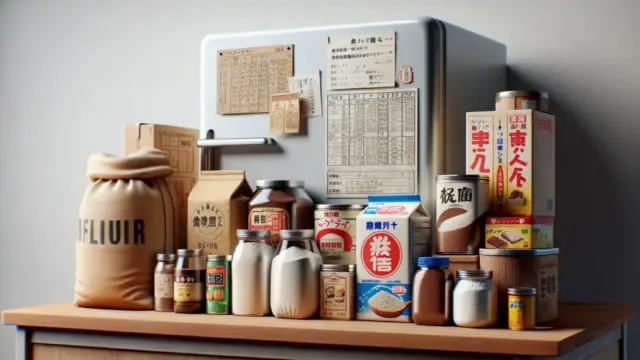If you’re a coffee lover, you probably understand just how crucial the freshness of your coffee beans is. To truly savor your coffee time, you want to start with fresh beans. However, figuring out the best way to store coffee beans can be a bit tricky. That’s why today, we’re diving into the topic of “freezing coffee beans”—a method that can help you maximize the delightful aroma of fresh coffee. Let’s explore how to make your daily brew even more enjoyable!
Freezing coffee beans can be incredibly effective for preserving their freshness, but it’s important to do it correctly. There are unique advantages and some drawbacks to freezing, which we’ll cover in this article. We’ll discuss which types of beans are best suited for freezing, how to properly store them, and key tips to maintain their freshness. Stick with us to the end for all the insights!
- Basic knowledge of coffee bean storage methods
- Benefits and precautions of freezing
- Tips for maintaining freshness
How to Store Coffee Beans: Essential Knowledge
To truly enjoy coffee, the way you store the beans is crucial. Different types of beans have distinct characteristics, so it’s essential to choose a storage method that suits each variety. Creating the right environment for storage can significantly extend the freshness of your coffee beans. In this section, we’ll delve into the types of coffee beans, their characteristics, and the ideal storage conditions.
Types of Coffee Beans and Their Characteristics
There are two main types of coffee beans: Arabica and Robusta. Arabica beans are known for their rich sweetness and aroma, and they are generally considered to be of higher quality. On the other hand, Robusta beans have a stronger bitterness and a higher caffeine content. Each type of bean offers unique flavors, influenced by the roasting and brewing methods, so understanding their characteristics is key.
When it comes to storage, each type of bean requires specific considerations. For instance, Arabica beans are sensitive to moisture and heat, making a dry, cool place the ideal storage option. While Robusta beans are relatively more resilient, proper storage conditions are still important.
- Arabica beans are rich in sweetness and aroma
- Robusta beans have a strong bitterness
- Tailoring storage methods to the bean’s characteristics is essential
What Makes an Ideal Storage Environment?
When storing coffee beans, there are several important factors to keep in mind. First, temperature and humidity are critical. The ideal storage temperature is between 15°C and 25°C (59°F to 77°F), with a humidity level of 40% to 60%. Additionally, it’s essential to avoid direct sunlight, as light can accelerate the oxidation of the beans; storing them in a dark place is recommended.
Furthermore, the container you use plays a significant role. Using an airtight container can protect the beans from air and moisture. Glass or ceramic containers are particularly recommended. Since the aroma of coffee beans is vital, it’s a good idea to use them as soon as possible after opening.
- The ideal storage temperature is between 15°C and 25°C
- A humidity level of 40% to 60% is desirable
- Using an airtight container is crucial
The Pros and Cons of Freezing Coffee Beans
Freezing coffee beans has gained significant attention as a method for preserving their freshness. Many people have adopted this technique to keep their beans in optimal condition. However, freezing has both advantages and drawbacks, so it’s essential to understand how to do it correctly. In this section, we’ll explore which types of beans are best suited for freezing and some important considerations when using this preservation method.
Which Beans Are Best for Freezing?
The best candidates for freezing are freshly roasted coffee beans. When frozen, these beans can maintain their aroma and flavor for a longer period. This is particularly true for delicate varieties like Arabica, which can benefit from freezing to preserve their unique characteristics.
When freezing, it’s crucial to portion the beans appropriately. If you freeze the entire batch at once, you’ll end up repeatedly thawing and refreezing them, which can lead to a loss of flavor. By dividing the beans into smaller portions, you can take out only what you need, ensuring that the remaining beans stay fresh.
- Freshly roasted beans are ideal for freezing
- Suitable for delicate varieties like Arabica
- Portioning is key to preserving freshness
Important Considerations for Freezing
There are several important factors to keep in mind when freezing coffee beans. First, make sure the beans are completely cooled before placing them in the freezer. If you put hot beans in the freezer, they can develop frost, leading to moisture absorption, which negatively affects quality. Additionally, after removing the beans from the freezer, it’s recommended to let them thaw at room temperature before use.
While frozen beans can last for an extended period, keeping them frozen for too long can compromise their flavor. Ideally, aim to use the beans within one to three months. By effectively utilizing freezing techniques, you can enhance your coffee enjoyment to the fullest.

If you’re interested in learning more about coffee storage, check out our article on “How to Store Ground Coffee: Tips to Keep It Fresh.” It provides detailed insights on how to store ground coffee and specific tips to maintain its freshness, helping you expand your coffee experience even further.
- Cool the beans completely before freezing
- Thaw at room temperature for best results
- Aim to use within one to three months
A Practical Guide to Freezing Coffee Beans
We’ve discussed the benefits and considerations of freezing coffee beans, but when it comes to actually doing it, you might find yourself a bit unsure about the process. In this article, I’ll walk you through the specific steps for freezing your beans, along with the best methods for thawing them. By following the right approach to freezing, you can preserve the freshness of your coffee, so let’s dive in!
Step-by-Step Guide to Freezing
To maintain the quality of your coffee beans while freezing, there are a few key steps to follow. First, divide the beans into smaller portions before freezing. By separating them into single-use amounts, you can easily grab just what you need without exposing the rest to air and moisture.
Next, place the beans in airtight bags or containers, making sure to squeeze out as much air as possible. Air exposure leads to oxidation, which can compromise the flavor of your beans, so sealing them properly is crucial. Once you’ve done that, pop them into the freezer. After freezing, aim to use the beans within one to three months to ensure optimal freshness.
- Divide the beans into portions
- Place them in airtight bags or containers
- Use within one to three months of freezing
Thawing Methods and Their Impact
When it’s time to use your frozen coffee beans, pay attention to the thawing process. Start by removing the beans from the freezer, but don’t use them right away. Allow them to thaw at room temperature. Rapid temperature changes can negatively affect the beans, so it’s best to let them warm up gradually. Once they’re fully thawed, you can brew your coffee and enjoy!
For the best flavor and aroma, I recommend using the beans as soon as possible after thawing. Frozen beans can be a fantastic way to enjoy fresh coffee, but by adhering to proper thawing methods, you can ensure that delightful flavor remains intact.
- Thaw slowly at room temperature
- Use thawed beans promptly
- Be mindful of temperature changes to preserve flavor
Coffee Bean Storage: Shelf Life and Freshness
Now that you understand the best ways to store coffee beans, let’s dive into an essential aspect: the relationship between shelf life and freshness. To truly savor your coffee moments, it’s crucial to maintain the freshness of the beans. In this section, we’ll cover the typical shelf life of coffee beans and some key tips to ensure they stay fresh.
Shelf Life Guidelines
The shelf life of coffee beans can vary depending on the type of beans and how they are stored. In general, freshly roasted coffee beans are best enjoyed within about a month after opening. If you opt for freezing your beans, it’s recommended to use them within one to three months. Enjoying them within this timeframe allows you to fully appreciate the beans’ natural aromas and flavors.
However, keep in mind that the freshness of the beans can also be affected by storage conditions and the environment. So, while these guidelines are helpful, it’s important to pay attention to the aroma and taste. If you notice any decline in flavor, it’s wise to use them up sooner rather than later.
- Best enjoyed within one month after opening
- If frozen, use within one to three months
- Freshness can vary based on storage conditions
Tips for Maintaining Freshness
To keep your coffee beans fresh, there are several key points to consider. First, choose an airtight container for storage. By blocking out light and air, you can prevent oxidation and preserve the beans’ flavor. Additionally, it’s ideal to store your beans in a cool, dry place.
When it comes to using the beans, it’s best to grind only what you need for each brewing session. Ground coffee oxidizes more quickly, so keeping the beans whole and grinding them just before brewing is the secret to enjoying a fresher taste. By following these tips, you can elevate your coffee experience even further.
- Use an airtight storage container
- Store in a cool, dry place
- Grind only the amount you need
Conclusion
In this article, we explored the ins and outs of freezing coffee beans. To truly enjoy fresh coffee, it’s important to understand how to store it properly and for the right duration. Freezing can be an effective way to extend the life of freshly roasted beans, but adhering to the right techniques will help you unlock the full flavor of your coffee.
We also shared tips on how to maintain freshness and the ideal storage duration. By creating a suitable environment for your beans and grinding only what you need, you can elevate your daily coffee experience. We hope you take this knowledge to heart and enjoy your coffee life to the fullest.
- Freezing is effective for keeping fresh beans longer
- Aim for a storage duration of 1 to 3 months
- Use airtight containers and grind only what you need to maintain freshness
Let’s continue to find new ways to enjoy delicious coffee. If you found this article helpful, feel free to share it with your friends! And if you have any tips or questions about your own coffee storage methods, we’d love to hear from you in the comments!















































Comment